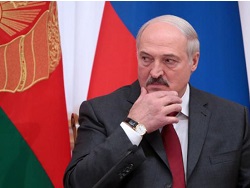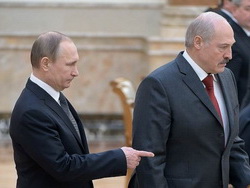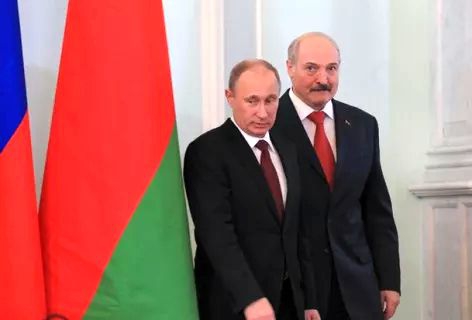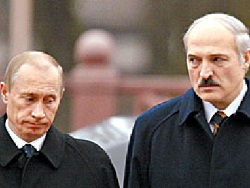
Georgy Filimonov about the ambitions, “the zmagary” and the splits on two chairs.
After the Ukrainian revolution 2014 Eastern Europe have not felt the political balance. Chaos gradually tightens Hungary and Poland in Ukraine’s internal conflict that threatens civil war escalating into a full-fledged international conflict. The situation becomes hopeless.
In April 2016 the Prime Minister of Ukraine Yatsenyuk resigned, painted in his own incapacity. What’s next? Following the U.S. scenario, Poland puts on the expansion of military-political Alliance with Turkey. Warsaw has undertaken implementation initiated by the Americans (with the filing of the private intelligence and analysis company “Stratfor”) an ambitious project called the Intermarium (Intermarium), which involves the creation of an anti-Russian Alliance from the Baltic to the Black seas. That is, the poles seek to unite under its banner the Ukraine, Turkey and Georgia to block the rapprochement of Russia and Germany as well as Russia’s access to warm seas, the place where the devastating Syrian fight. Who is directing?
Over the past hundred years, the US has systematically confronted the Russians and the Germans, using Poland as a dilution of power. Here’s how to comment on these projects is browser REGNUM Stremidlovsky Stanislav: “Ankara decided to support the Polish arguments in favor of strengthening so-called “Eastern flank” of NATO. As reported by the Warsaw newspaper Rzeczpospolita, during a visit to Ankara, Minister of foreign Affairs of Poland Witold Waszczykowski first heard from Turkish President Recep Tayyip Erdogan assurances that the Turkish side “takes a similar position regarding the role of the Alliance against threats from the East”.
In this sense, the regional significance of Belarus is of particular importance. President Alexander Lukashenko is trying to extract from the scheming political and financial gain. Minsk has swung in the direction of Ankara, as evidenced by the results of Lukashenka’s visit to Ankara, which took place on April 17. Lukashenko and Erdogan agreed to restart economic relations between the two countries. “I would like to emphasize the interest of the presidents of the two countries in developing trade-economic cooperation. In fact, they set a task to restart economic relations and reaching a higher level”, — said the Ambassador of Belarus to Turkey Andrei Savinykh.
Lukashenka’s behavior makes you wonder, since Turkey is an indirect participant in the Syrian civil war, supporting the terrorist group ISIL * and “Dzhebhat EN-Nusra” **. In such a crucial moment Minsk skillfully forgets” about the allied debt to Russia within the CSTO. Odd, isn’t it?
Because Russia and Belarus are in the same boat — the economy and society are intertwined. The share of Moscow constitutes about 90% of exports from Minsk. Mainly we are talking about food products, agricultural raw materials and engineering products. Since 1996, both countries are engaged in the construction of the Union state (though unsuccessfully), and in 2010 Russia, Belarus and Kazakhstan established the Customs Union and the common economic space, which in may 2014 became the Eurasian economic Union. A little later the Association was joined by Armenia and Kyrgyzstan.
Moscow and Minsk have many joint projects. Nevertheless, bilateral relations are constantly in thrall to the rhetoric, as President Lukashenko “veers” between Russia and the West, playing on the contradictions between Moscow, Brussels and Washington. Such attempts to sit on two/three chairs of history known. The finale is always the same. Viktor Yanukovych is a textbook example.
The economic situation in Belarus is becoming more intense. The proof of this is the increase in the retirement age (58 for women and 63 years for men), a decree which was signed on 11 April. The situation in the economy deteriorated in 2015, when the growth of the dollar had a negative impact on the trade turnover between Russia and Belarus. According to the Ministry of economic development, trade fell by 27.5% to $ 20520,0 million, including exports, Russia to Belarus — $ 12724,6 million (a decrease of 23.2%) and imports — $ 7795,4 million (a decrease of 33.6%.).
When the cash flow declined, Lukashenko has applied for $ 3 billion to the international monetary Fund. However, the Fund’s experts are in no hurry to Finance. Moreover, the IMF issued the Minsk “sentence”: “the Financial sector is characterized by dominance of state institutions, is faced with internal structural problems, dollarization and the influence of external negative factors. The resolution of problem assets, which should be linked to the restructuring of enterprises, is of great importance to preserve financial stability.”
And then followed this tirade Lukashenko against Russia, said during his speech with address to the National Assembly and the Belarusian people: “I want to understand the Russians, especially the Russian leadership that we are not errand boys. We are an independent, sovereign state living with you in the same house, but with my apartment. Let small, small but its an apartment.”
Recall that in mid-April, the head of Belarus has sent to Washington a government delegation to attend the meeting of the boards of governors of the IMF and the world Bank. And again, to no avail. Western financial institutions refuse to Minsk since 2011.
So, to recap. Alexander Lukashenko once again stood shoulder to shoulder with Vladimir Putin in confrontation with the West. Belarus has not recognized the return of the Crimea, not recognized the independence of South Ossetia and Abkhazia. Alexander G. in fact, equated the militia DND and LNR militants from the punitive battalions. In the conflict with Turkey Minsk, too, chose to remain silent, and the recent meeting of Lukashenka and Erdogan once again forced to think about the prospects of the “Union state”.
Notable advances of the Belarusian authorities with the local nationalists who receive economic, and organizational support from the top. Moreover, the ideological Foundation of the “zmagarov” is not the national identity of the Belarusians as part of the Eastern Slavic people, and “litvinizm built on the denial of the unity of Russians and Belarusians, because “actually” Belarusians are the descendants of the ancient Lithuanians, whose main historical enemy was Muscovy. That’s such a false “porridge”. Building their national identity on the basis of aggressive Russophobia, as shown by the Ukraine, quite effectively. And Belarus is slowly but surely push this way.
Past month ago, “freedom Day” in Minsk, once again showed loyal attitude of the Belarusian leadership to local forces promaydannyh, yelling at every step “Who does not jump, the Muscovite”. We can recall the match Belarus — Ukraine, at which the Belarusian football hooligans sang obscene chants and slogans against Russia and its President in the manner of their Ukrainian “colleagues”. But this means that the main striking force of the “Maidan” — a fusion of nationalists and soccer fans in Belarus are ready. They just have to wait for a visual signal of their overseas and European cartridges. And there is a high risk that Lukashenko can not cope with this process and can repeat the Kiev scenario, but only in a more tragic form.
In the American geopolitical strategy for Eurasia Belarus may become one of the key elements of creating a ring of instability on the perimeter of Russia’s borders, along with Moldova, Ukraine, the Baltic States, the South Caucasus and Central Asian countries.
The idea of “Maidan” in Belarus live and thrive. Alyaksandr Lukashenka was among the first countries to recognize the coup in Ukraine and came to power, Kiev junta. Earlier, before him, only did the US and the EU.
We should also mention the hindering of critical reflection and discussion in the Belarusian socio-political space of the theme of the Ukrainian Maidan. A recent example was the visit to Minsk by the Russian writer Nikolai Starikov. It was the Belarusian Patriotic public (not the police) stopped the attempts of provocateurs to disrupt the communication Starikov with your readers and fans. Raise many questions and attempts to stop the sale of his books in stores on the territory of the Republic.
Anyway, for Alexander Lukashenko’s time of rampant maneuvering and bargaining ends. It is time to take strong-willed decisions and to decide on priorities. Russia or the West? Consolidation or disintegration? Life or nothingness? Common sense tells us the only way. It is obvious that for preservation of Belarusian statehood, economy and social stability (and, our common Russian people) Alexander Lukashenko is no alternative to strengthening of comprehensive ties with Russia and the joint construction of the Eurasian Union.
* “The Islamic state and” Dzhebhat EN-Nusra” as terrorist organizations whose activity in Russia is officially prohibited by a decision of the Supreme court of the Russian Federation from December 29, 2014
<hr/>








